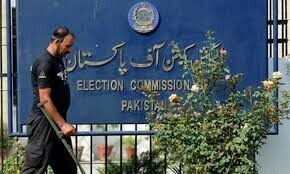IN a recent piece published in the Journal of Democracy, scholars Adeel Malik and Maya Tudor provide an overview of why the Pakistani state is losing its ability to control the political landscape. In their own words, the authors foresee a ‘crisis of governability’ that will only deepen in the coming years.
The clearest indication of this crisis is the current regime’s struggle in two distinct arenas: the first is that it faces extremely low levels of societal acceptance for its political and economic actions. The second is that its ability to bend political and economic outcomes according to its own agenda is increasingly handicapped.
In terms of societal acceptance, actions such as coercion against PTI members, continued incarceration of Imran Khan, the ‘management’ of the 2024 elections, tales of ‘digital fitna’, and the post-election set-up cobbled together with the PML-N at its helm are all fairly unpopular. Any public opinion surveys will show the low levels of legitimacy for the current dispensation, the continued popularity of PTI, and a historic lack of trust in the military establishment that now extends well beyond the geographic peripheries.
In the economic domain, mass perception is that the regime is flailing about and the economy continues to worsen. While a few recovering indicators, such as inflation, current account numbers and the stock market, are hyped as success stories, no one really cares about these in the face of plummeting real wages and the drying up of economic opportunities given the lack of growth. The relentless assault of taxes and rising electricity tariffs in the recent budget twisted the proverbial knife and set off another wave of dismay.
The only economic area that state personnel show competence in is appropriating benefits for themselves.
Clearly, public reaction to whatever political and economic story the state is selling ranges between resigned apathy and complete mistrust. But that is not necessarily the end of it. Many governments hold power while being unpopular, especially if they have no democratic pretensions. Authoritarian regimes require some legitimacy (among key backers), sure, but the bigger priority is to bend political and economic outcomes as per their will.
This is the second distinct aspect where the current set-up is struggling. The 2024 election results indicated that large-scale election manipulation that relies on shepherding electables, legal straitjackets and extra-legal suppression is an increasingly impossible task. Recent decisions by the superior courts that provide relief to the PTI further show that not everyone within the state is willing to play along. The judiciary is emerging once more as a site of active resistance.
To overcome such resistance, doubling down on even more coercion and manipulation will be required. No wonder, then, that ideas like banning the PTI and appointing ad hoc judges were floated soon after the Supreme Court’s decision on the reserved seats case.
Such handicapped authoritarianism coexists with another long-standing issue: the state’s inability to steer economic outcomes towards any type of sustained growth. The frequently narrated dollar bonanza from the Gulf and China has so far failed to materialise; domestic investment continues to languish; and no amount of reform rhetoric can paper over the fact that key sectors, such as energy, continue to act as a drain on the overall economy.
The only economic area that state personnel show competence in is appropriating benefits for themselves, or as Aasim Sajjad, Shahrukh Rafi Khan, and Sohaib Bodla put it succinctly, “an enhancement of their own quality of life at the expense of the rest of the citizenry”.
Several analysts and scholars rightly point out that the crisis of governability is an outcome of deeper changes within Pakistani society. Urbanisation, the rise of a vocal white-collar upper middle class, the growth in dreams, aspirations, and ambitions among lower middle class segments, and the rise of a separate information universe on social media that challenges state-spun fables (and puts out its own), have all helped loosen the state’s political control.
The symptom of this crisis — surging anger at a failing economy and suffocating politics — is being channelled through the figure of Imran Khan and his party. But the underlying reality is that the status quo of the past few decades is proving itself to be largely unsustainable.
In several aspects, the current moment of low social acceptance and low ability is reminiscent of the final stages of Musharraf’s martial law regime. Between 2005 and 2007 too, the economy faltered, the state was unable to do anything about food and energy crises, the superior judiciary emerged as a site of activism, and opposition of all colours, from militant fundamentalism, to middle class civic action, to mainstream party-based opposition, all became active.
Learning from the recent past, a short-term path forward could be a brokered negotiation that at least fixes the acceptance part of the equation for the state, even if it can’t do much about the ability part. A fresh election in a defined time frame, removal of restrictions on the opposition and social media, dropping of frivolous cases against party leaders, and restoration of proper parliamentary politics can act as a much-needed safety valve.
Sceptics will counter with the retort that these steps do nothing for the bigger problem of a broken economy and a dysfunctional public sector. There is certainly truth in the fact that no mainstream party in power has shown that it can harness domestic economic productivity and repair the public sector’s ability to deliver services (to a population beyond itself).
But to the sceptics, one asks: which version of the state has a better chance to achieve these goals, one that is mired in a crisis of both legitimacy and ability, or one that has at least one part of the equation working in its favour?
The writer teaches sociology at Lums.
X: @umairjav
Published in Dawn, July 22nd, 2024















































